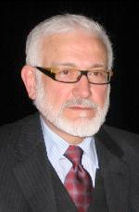By Grant Steves
 In 2007, Charles Taylor published his book, A Secular Age. It is a 900 page treatise on the philosophical and sociological history and critique of secularism. Since the Reformation secularism in Western culture has increased and the signs of that can be seen in three ways.
In 2007, Charles Taylor published his book, A Secular Age. It is a 900 page treatise on the philosophical and sociological history and critique of secularism. Since the Reformation secularism in Western culture has increased and the signs of that can be seen in three ways.
1) The ‘public spaces’ of politics, business, education, law, and medicine do not operate on the presupposition of a belief in god or the supernatural.
2) That the number of people attending a church or a place of worship has continued to decline.
3) That in a reasonable person’s life it is now optional and not axiomatic to presuppose religious belief and the existence of god.
It is ironic that the democratization of religion has resulted in its decline. We went from one religious authority in 1400 to having over two thousand Christian authorities today. Each century since the Reformation has seen the proliferation of Christian sects and cults. The greatest number of these new sources of religious authority developed in the United States. The free market place of a democratic society has encouraged the development of religious groups, free thinking groups, and scientific thought. Christianity – note especially Protestant – has not encouraged science but rather has not been able to stop its expansion and influence.
The American experience has also given birth to a wide number of ‘well-meaning’ public sector groups (religiously motivated). The list includes: The Christian Voice, The Christian Coalition, Focus on the Family, The Family Research Council, etc. Some of them maintain a tax free status by supporting or attacking issues and not candidates. For example: two candidates are running for governor. Candidate X supports ‘abortion on demand’ (two words that exaggerate the meaning of Roe vs Wade); Candidate Y is pro-life and has called for a ban on abortions and getting rid of Roe vs Wade.
They do not endorse Candidate Y, however, by their issue statements a ‘Christian’ will know who to vote for in the election.
A recent incident has noted another approach groups may take to gain political influence. The Isaiah group states on their website under ‘Prophetic Voice’ that they “…address concrete issues that will benefit our community…. Encouraged by God’s prophetic call to service.” They are a group supporting religious values.
It is alleged their intent is to change government from the inside. The following alleged activity has been used:
1) The group has members hired to government positions – no problem at this point.
2) The members hired support candidates for employment and promotion who are members of their group or reflect their values – ethically questionable but not necessarily illegal.
3) The members hired must post employment openings to the public and they may define the opening in such a manner only their candidate will qualify or they dismiss other candidates for reasons that do not allow them to appear before the hiring Board – unethical and illegal.
4) The result is an agency that reflects their Christian values.
The values may not be in conflict with a secular approach to government. However, the promotion of individuals that support a religious agenda is ethically and perhaps legally wrong.
The challenge of maintaining a secular nation requires citizens to be alert to activities by religious groups pushing their dogma based agendas. No doubt good intentions are behind public support for education but when it is religious education the intention is motivated by religious bias. Which religious institution should receive the public funds? Catholic, Jewish, Islamic, Lutheran, Buddhist, or Satanic schools? If the government is to be neutral in its treatment of religions it must give to all an equal share of the money. Being neutral and secular assures government is not involved with any group or to show any bias.
Thomas Jefferson had it right when he wrote to the Baptists in Danbury – we must have a wall of separation between religion and government – in that case a wall between the interests of the Baptists and the Congregationalists. The concern was not over some cult but another Christian denomination – known for its lack of tolerance toward differing Christian points of view. To let either prevail is to surrender to the theocrats.

